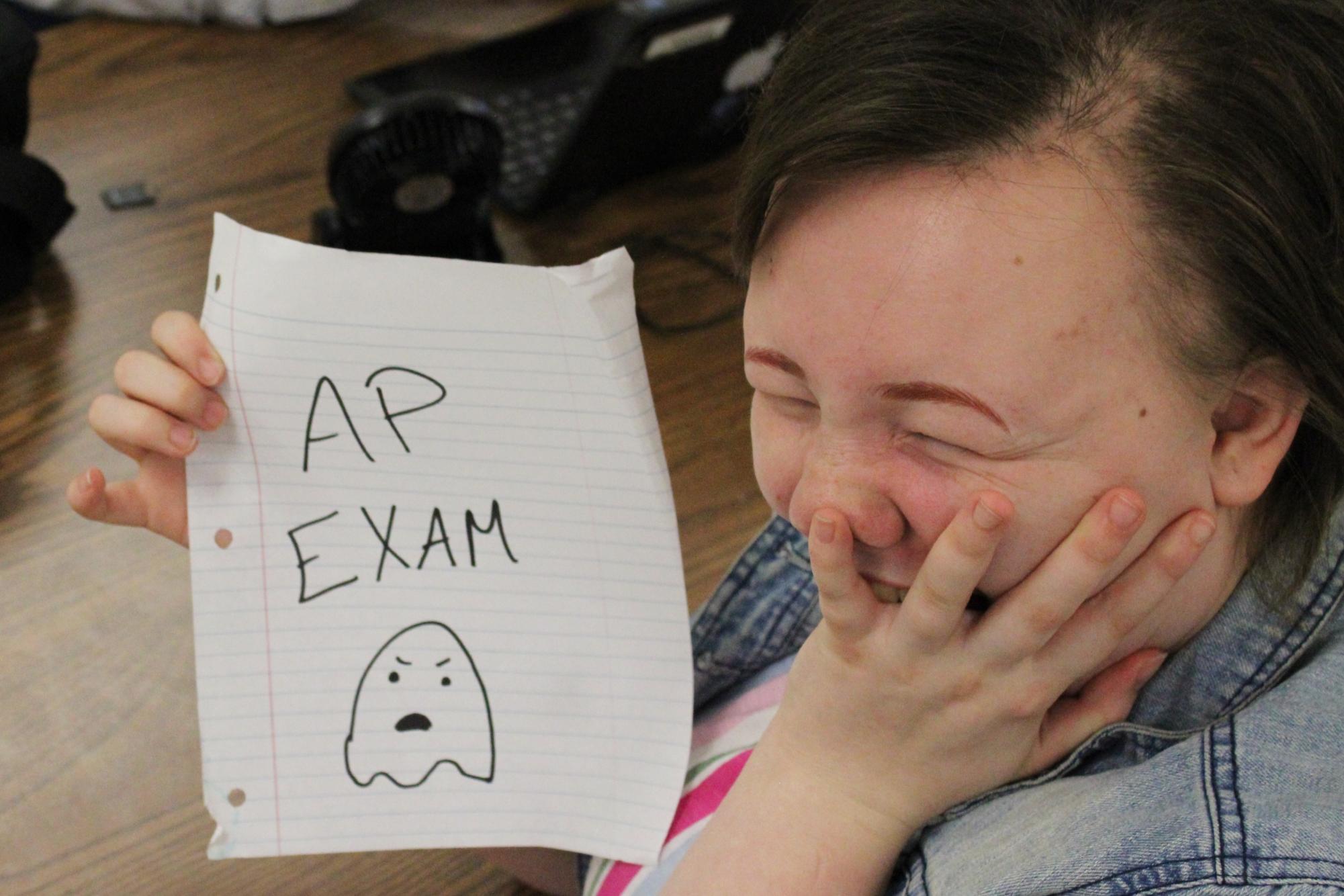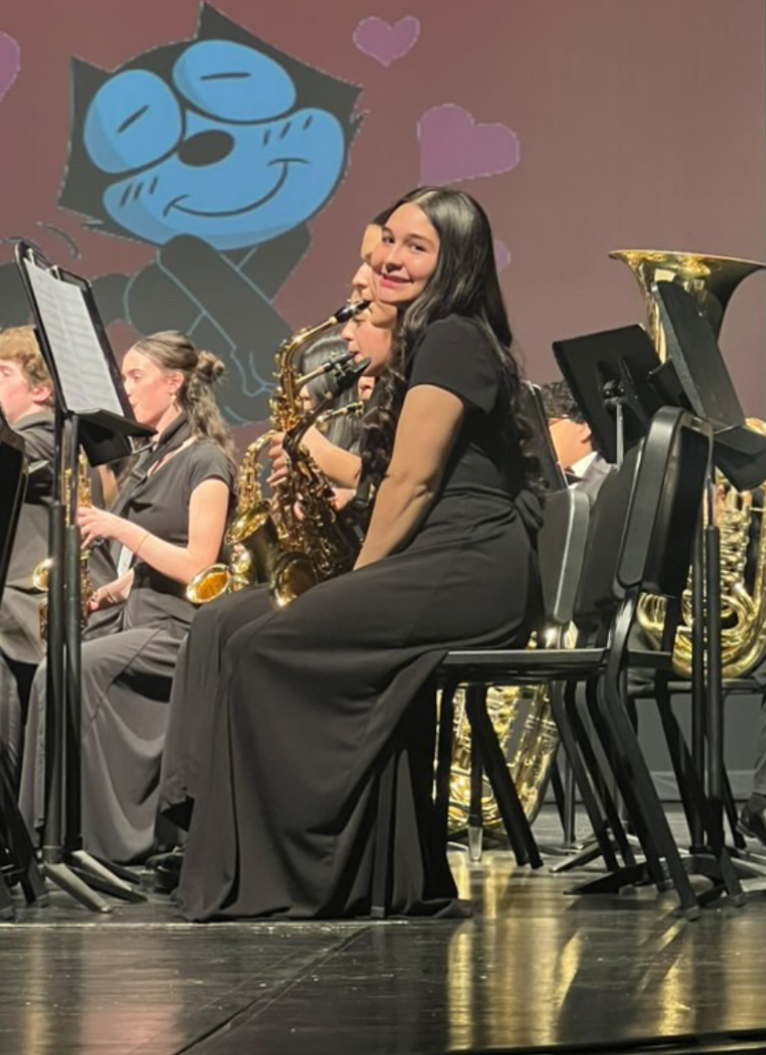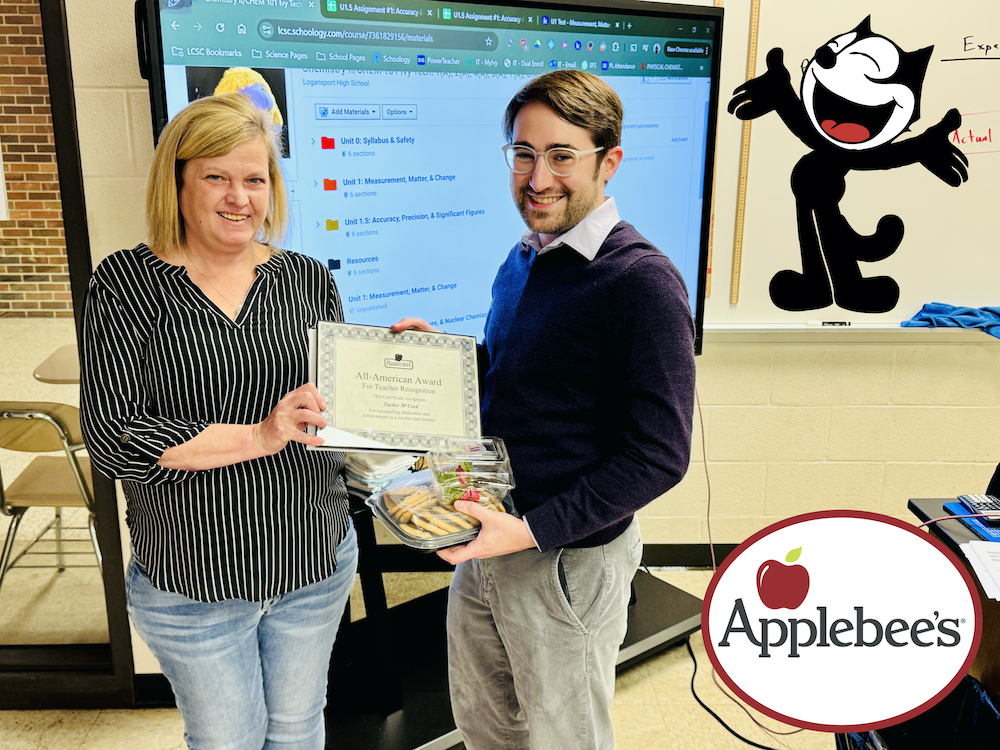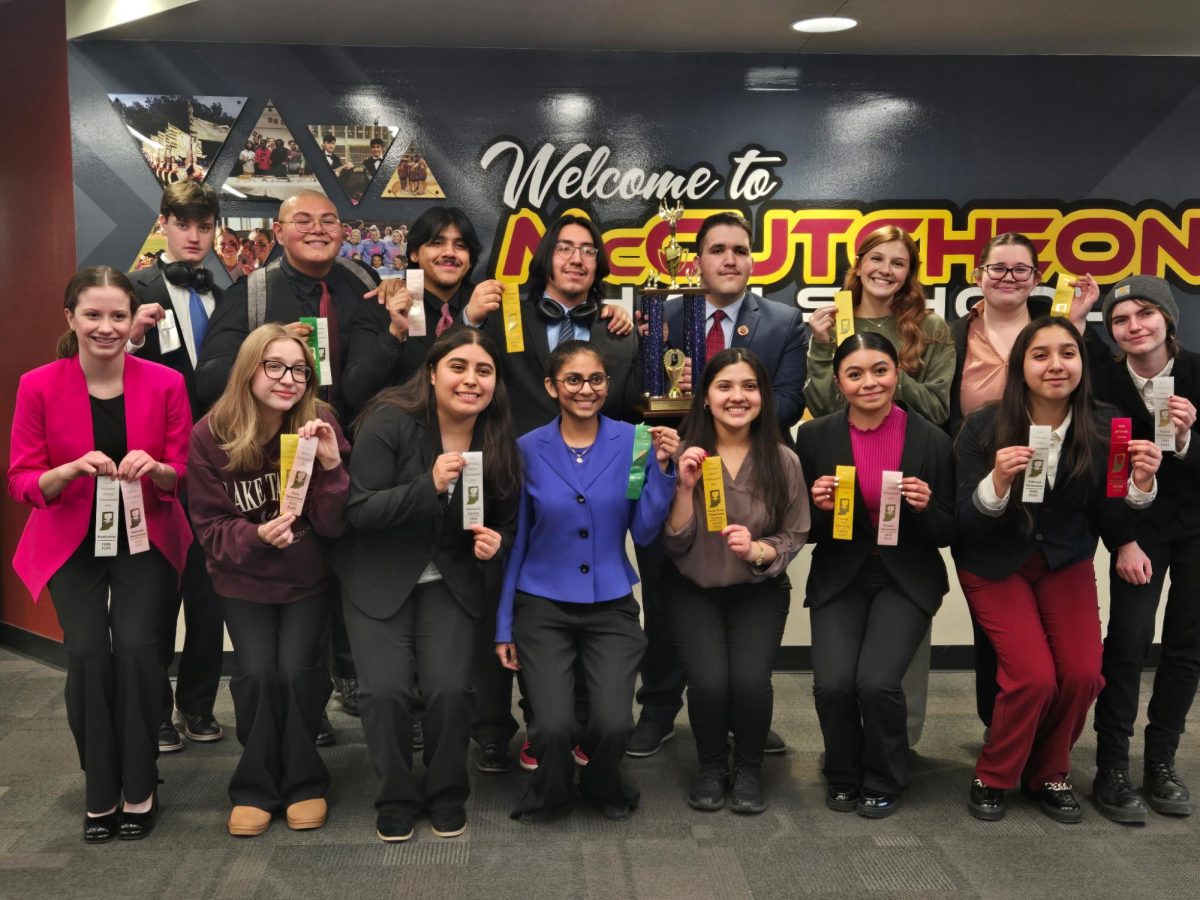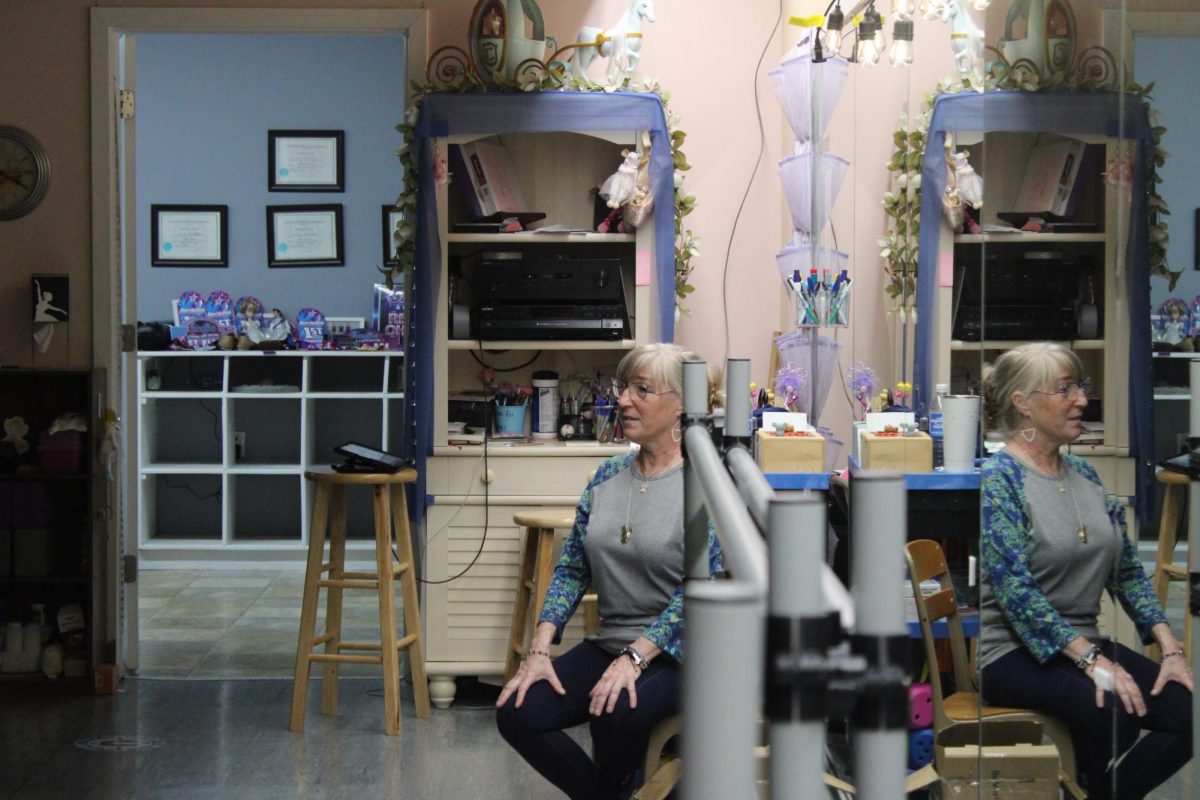After the announcements of the school day, students sit at spaced-out tables and desks, one at each. All of their backpacks and phones are in the front of the room, and the only things accompanying them are a pencil, pen, a shrink-wrapped booklet, and labels with their names. The room is filled with a loud silence full of tension and stress. A whole school year has been dedicated to learning the material. Now, the final test is here. Some heads turn as the proctor of the day stands up, and more heads lift as instructions fall out of the proctor’s mouth.
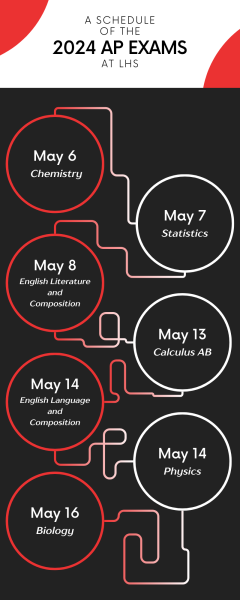 Advanced Placement (AP) exams can be some of the most stressful times for students, and for many, it is a make-or-break day on whether or not they can receive college credit for the class or classes they’ve taken. AP classes are one of the most rigorous classes that can be offered at a high school and are a great segway into what college courses can be like. At Logansport High School, seven AP courses are offered and are listed off to the side. One of the few instructors of the courses, Biology and AP Biology teacher Laura Morgan, has been teaching AP Biology for around 20 years and has kept a standard approach for preparing students for the upcoming exam.
Advanced Placement (AP) exams can be some of the most stressful times for students, and for many, it is a make-or-break day on whether or not they can receive college credit for the class or classes they’ve taken. AP classes are one of the most rigorous classes that can be offered at a high school and are a great segway into what college courses can be like. At Logansport High School, seven AP courses are offered and are listed off to the side. One of the few instructors of the courses, Biology and AP Biology teacher Laura Morgan, has been teaching AP Biology for around 20 years and has kept a standard approach for preparing students for the upcoming exam.
“We are mostly reviewing, playing games, and watching random videos to see if we’ve learned all the things that the world thinks we should know,” Morgan said.
Along with reviewing, Morgan also points out different concepts that AP might look for when grading students’ AP exams.
“Me specifically, and again, I’ve done this for a very long time, I’ve done things like taking the classes for grading AP exams so that I can get the inside scoop on what to look for and how to answer the questions,” Morgan said.
With that knowledge from previous exams and insight from the grading classes, Morgan makes sure her students can be as prepared as possible.
“So, as we go through the units, I try to warn them when this is something they’ll see in a bunch of different ways,” Morgan said. “Something else that I do that might be different, and I warn everybody at the beginning, is that we go really fast at the beginning and try to cover as much ground as we can while we’re fresh. This is so that we can stop when it gets closer to when all other classes are getting overwhelming and starting to take other AP exams and things like that.”
Despite the rush of covering coursework and different concepts, Morgan still ensures time to review and reflect over the course.
“At some point though, you have to have a moment to let it simmer so that you know what you feel like you understand and forgot. So, I try to build time into the end of the schedule to not do anything new and to talk about material.”
For students like senior Colby Anderson and junior Annika LaOrange, the review before one of their AP exams played a critical role. Anderson took AP Calculus his junior year and is now taking AP Physics and Statistics. LaOrange is taking AP Statistics and plans to take AP Calculus and Physics her senior year.
“We didn’t know what formulas we were going to have,” LaOrange said. “So, Mr. Grenard told us we needed to know every formula, but what if we can’t and just want to prepare ourselves for the ones we don’t have?”
Instead of sitting around, LaOrange took time outside of class to prepare for what wouldn’t be provided for the exam.
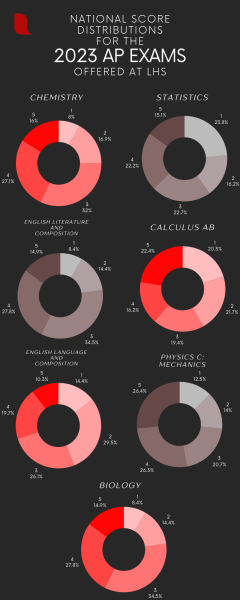 “I’d look up a cheat sheet that told me what formulas we’d have on the test and from that, I’d look for the different formulas to study for since they’re not on the provided formula sheet,” LaOrange said. “I also did all of his practice multiple choice exams on AP Classroom and watched the videos from AP Daily.”
“I’d look up a cheat sheet that told me what formulas we’d have on the test and from that, I’d look for the different formulas to study for since they’re not on the provided formula sheet,” LaOrange said. “I also did all of his practice multiple choice exams on AP Classroom and watched the videos from AP Daily.”
Anderson also took a similar approach to reviewing for his exams.
“For AP Statistics, I did the review much closer to the test than I should have,” Anderson said. “I did the multiple-choice review questions and felt like I did well on the multiple-choice section of the AP exam. I also feel the same about the free-response questions, except for one.”
After AP exams, there might be some tension of not knowing your score for approximately two months, but it is a tremendous weight lifted off students’ shoulders. Not only have they “finished” the course, but through it, they can feel more prepared for what lies ahead in college.
“More importantly, regardless of getting a five on an AP exam, don’t skip the basic class in college,” Morgan said. “Just don’t do it. It’s more important than anything. It doesn’t mean you know all the information, but it helps you figure out how to learn. That is the biggest hurdle. Even the very best students will tell you that first year it’s like ‘Oh, this is the pace and this is how much I have to do on my own, and these are professors. They are not teachers.'”
Even if students anticipate getting lower than the passing score, which is a three, Morgan, LaOrange, and Anderson agree that the experience of going through a college-level class can prepare a student for what to expect.
“If you plan to go to Purdue, they don’t care as much for the dual credit you get from AP courses,” LaOrange said. “So, that’s not really what I was looking for. It’s just so you know the material already, so that when you take it in college, it is much more familiar to you.”
Morgan expressed a similar viewpoint to LaOrange.
“AP classes prepare you much more for the pace, rigor, and stress regardless of the score,” Morgan said. “Even if you get a one or a two, having gone through an AP class is much more beneficial than most of the dual credit classes simply because it expects a higher level.”


